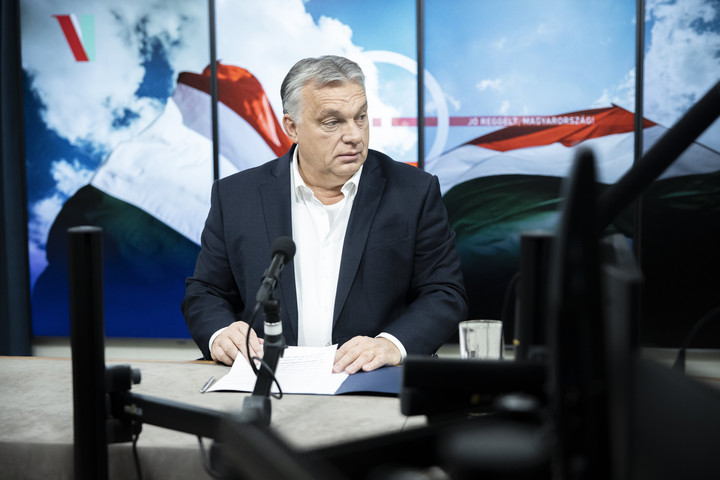European policies which advocate mass joint borrowing among EU member states to further finance Ukraine’s resistance to the Russian invasion of the country will have devastating consequences for the continent, Hungarian Prime Minister Viktor Orbán warned on Friday.
During an interview on the “Good morning, Hungary!” program on Kossuth Rádió, Orbán slammed the futility of the existing EU sanctions on Russian energy. He also said that “not only our children, but also our grandchildren will suffer the consequences” of the mass joint borrowing scheme proposed by the European Union to continue financing Ukraine’s defense; furthermore, we will also have to pay for the states that become insolvent along the way, he added.
The Hungarian leader reaffirmed his country’s opposition to Brussels financing the operation of the Ukrainian state through joint borrowing, suggesting instead that agreements with Ukraine should be made at the national level through bilateral agreements between individual countries.
[pp=57662]
“We do not want the European Union to become a community or group of jointly indebted states instead of a community of cooperating member states,” Orbán told listeners.
He highlighted that Ukraine has now found itself in a situation whereby it is incapable of functioning as an independent nation because of the ongoing conflict, and while it needs help from its neighbors and allies in the short-term, it is not for Brussels to speak on behalf of all member states.
“We accept the need for support, but we are not happy about it; if there was no war, there wouldn’t be this necessity either,” Orbán said.
The Hungarian prime minister also discussed the ongoing EU sanctions on Russian energy, including the latest oil sanctions due to come into effect on Dec. 5, which Hungary is exempt from.
[pp id=49846]
He warned that any further extension of EU sanctions on Russian gas or nuclear energy would have “tragic consequences” for Hungary, and insisted his nation must be exempt from such a decision.
Orbán lamented the failure of the ongoing energy sanctions, which he argued have not brought us “one millimeter closer” to the end of the war.
“We are facing a difficult winter, Ukraine is in an increasingly difficult situation, Russia is suffering difficulties, but its revenues from energy carriers are at their peak, so the policy of sanctions has not achieved its goal,” he added.
The Hungarian leader explained that while Hungary is not subject to the incoming ban on Russian oil imports into Europe, it will still be affected by the “price-inflating effect of the sanctions.”
Lastly, Orbán vowed to continue fighting for Hungarian interests in Brussels, telling listeners: “We have always achieved our own national goals in the negotiations on sanctions, so we are participating in the discussion of the ninth package with good hopes.”
He warned, however, that the “pressure is constant,” and with new packages of sanctions expected, the Hungarian government must “constantly fight to protect our interests.”






